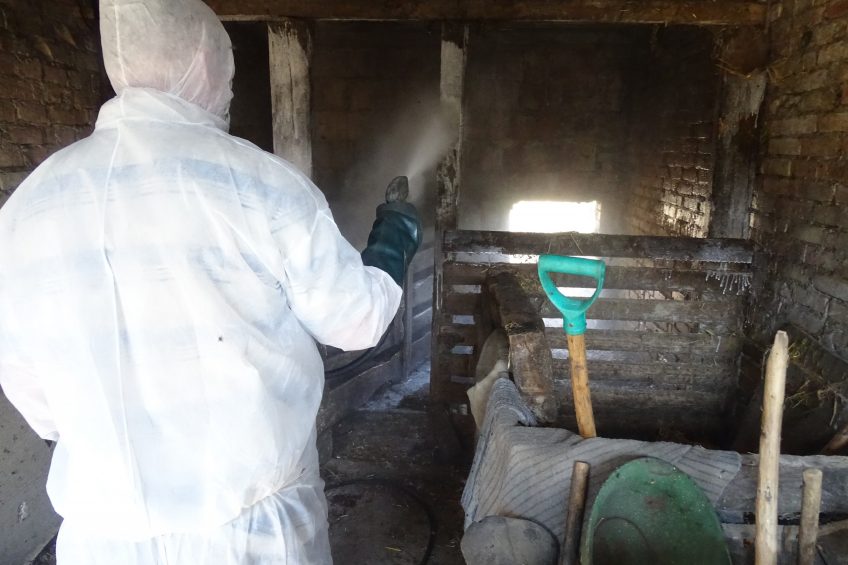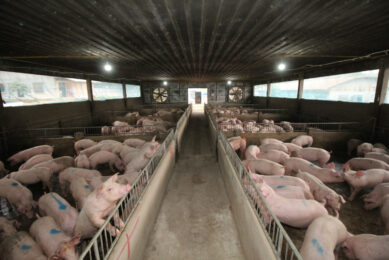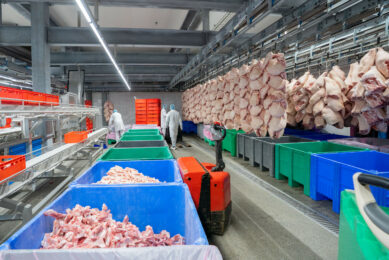ASF update: China culls 8,000 pigs

The Chinese authorities have culled over 8,000 pigs in an attempt to control the recent African Swine Fever outbreak.
That was reported by the World Organization of Animal Health (OIE).
Last Friday, the news broke that African Swine Fever had been found for the 1st time in China, at a farm near Shenyang in Liaoning province, in the north east of China. This city is located just over 200 km from the border with North Korea. The 1st notification of the virus had been done on August 1; in total the virus killed 47 animals on a farm with in total 383 pigs. All animals were culled there.
Pigs in wider surroundings were culled
To constrain further spread, pigs in the wider surroundings have also been culled. Initially, about 1,000 pigs were culled, but by August 6, this count had been expanded to be 8,116 pigs. These pigs were in an area with a radius of 3 km around the farm, a so-called ‘epidemic zone’. The OIE reported that in the entire Liaoning province, about 1.9 million pigs had been checked as a result of the outbreak; nothing remarkable was found during these checks.
China, which has been prepared thoroughly should ASF break out in the country, also banned the transport from pigs to and from the area. In addition, untreated food leftovers are not allowed to be fed to pigs. Thirdly, live pig markets as well as slaughterhouses have been suspended temporarily.
Japan suspended heat treated pork imports
News agency Reuters reported that Japan has now temporarily suspended the imports of heat treated pork from China. That is mainly to make sure that all requirements for imported products are being met. In addition, the quarantine procedures at airports and seaports have been tightened, predominantly for travellers from the cities Shenyang and Dalian, in Northern China.
ASF outbreak with potentially large consequences
Should these measures not be sufficient, then the outbreak could potentially have large consequences. In Central and Eastern Europe, where ASF was introduced in recent years, it has proved difficult to get the virus under control. This is mainly related to the fact that the virus continues to spread in the wild boar population.

Find out all there is to know about pig health using Pig Progress’ unique Health Tool
In Europe, there is a strong emphasis on the importance of biosecurity on swine farms. Exactly that is often a problem in China, especially with backyard farms, where local people have one or more pigs in their backyards.
China is by far the world’s largest pig producers with almost half a billion pigs. That is about 50% of the total world population.











